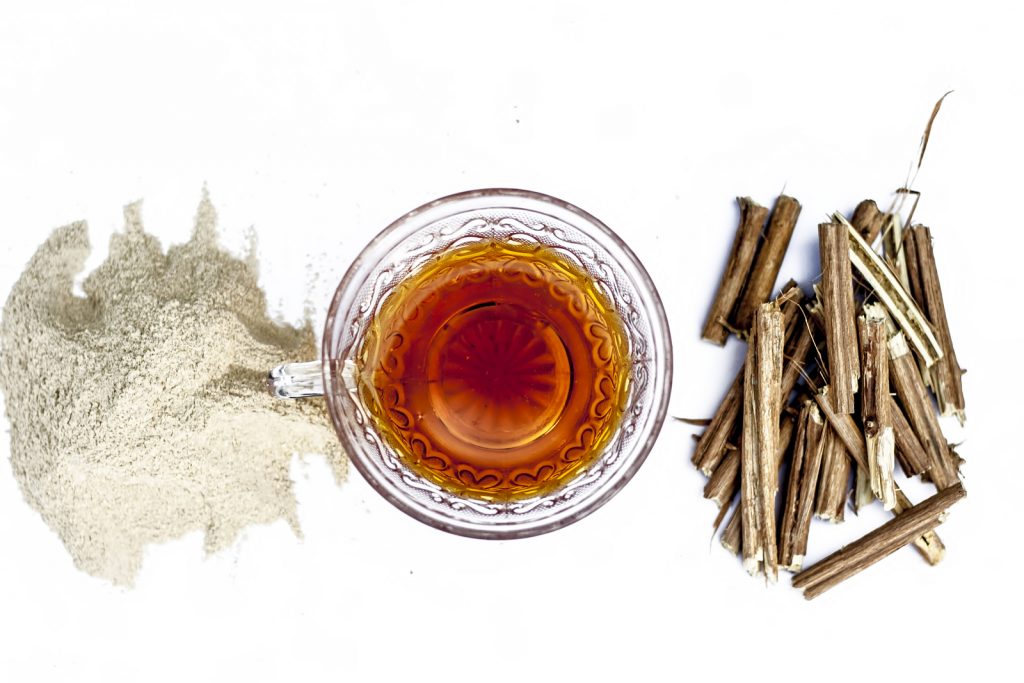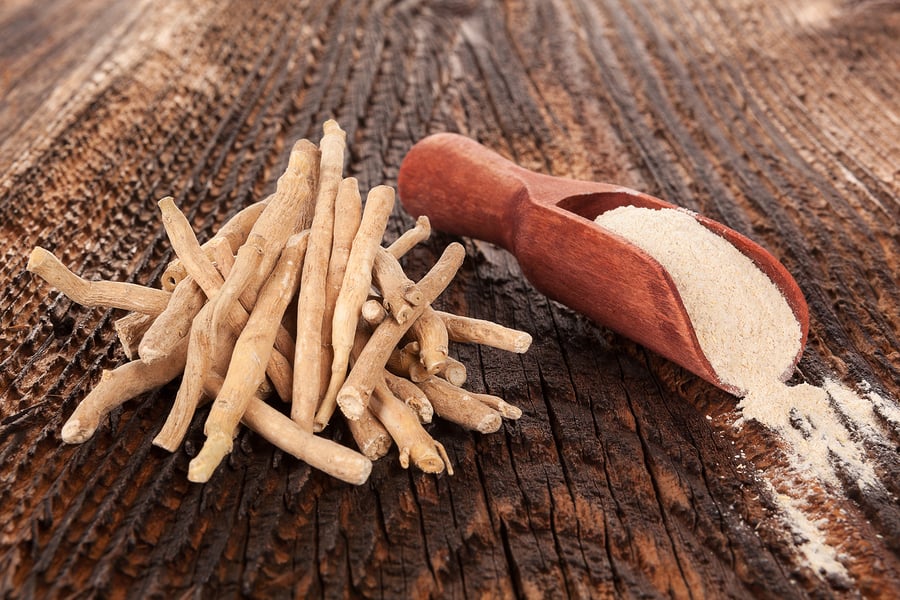3 Ashwagandha Benefits For Men (and Women)
This page contains affiliate links, which means I may receive a small commission for purchases made through those links. This adds no cost to the reader and helps me keep the site up and running. Click here to read my affiliate disclosure.

What is Ashwagandha?
Ashwagandha is an herb that is a member of the tomato family. It looks very much like a plump shrub, mostly, with oval leaves and yellow flowers. The leaves and red fruit can be used for their therapeutic properties, but the root itself is the most commonly used part, whose benefits we will explore later.
The herb is found in the dry regions of India and the Himalayas, northern Africa, and the Middle East, and has been around since ancient times. The word literally translates to “the smell of a horse” and “Indian ginseng.” Other names include Withania Somnifera, Winter Cherry, Dunal, and Solanaceae. It is also grown in the United States.
Ashwagandha Benefits
Men often seek to use Ashwagandha for its sexual enhancement properties as it is known to strengthen one’s sex drive. But these benefits are not unique to men, because they can benefit women who are looking for a libido uplift or anyone for that matter.
Ashwagandha has health benefits outside of the bedroom as well. For instance, it is often recognized for its Ayurvedic healing abilities. Ayurveda is a form of alternative medicine, which states that our bodies are woven from food. An emphasis is placed on nutrients and how they are metabolized into energy and the building blocks for forming our cells, tissues, and organs. “Every day our bodies need essential vitamins, minerals, and other nutrients to maintain our body’s delicate balance.”[1]
1. Restorative Effects
The restorative effects of Ashwagandha are many, and include:
- Fight stress
- Reduce anxiety
- Stabilize blood sugar
- Stabilize mood
- Reduce fatigue and depression (and doesn’t cause drowsiness)
- Lower cholesterol
- Regulates hormones
It’s Adpatogenic
Ashwagandha is adaptogenic, meaning it helps modulate your response to internal and external stressors. Internal stressors like anxiety and insomnia, and external stressors like a change of environment or toxins.
Fights Insomnia
Insomnia sufferers, in particular, tend to find aid from Ashwagandha. If you are an insomniac or have insomnia-like symptoms and would like to give Ashwagandha a try, it is recommended that you use it in powder form mixed with warm milk and take before bed.
Adrenal Fatigue Relief
Ashwagandha is also known to combat adrenal fatigue, a result of the taxation of the adrenal glands, which are stress hormones that release cortisol and adrenaline in the presence stress on the body.
2. Preventative/Protective Effects
Historically Ashwagandha has been used in conjunction with other treatments to assist cancer patients who undergo chemotherapy. While it is not been specifically proven to treat cancer, it’s immuno-protective properties are what cause it to frequently be used alongside other treatments for cancer sufferers.
In addition, Ashwagandha is anti-inflammatory and anti-malarial, reduces oxidative stress, and reduces the normal degredation of brain-cells.
3. Enhancement Effects
Beyond its restorative and protective effects, and as stated earlier, Ashwagandha is most well known for its sexual enhancement effects. It is purported that Ashwagandha can provide the supplementer the vigor and strength of a stallion, enhancing an individual’s libido.
Other Ashwagandha enhancement effects include:
- Strengthen immune system
- Improve learning and memory
- Enhances reaction time
- Increases energy
- Increases endurance
- Enhances focus
Dosage
Recommended dosage for Ashwagandha is between 600 to 1,000 mg two times per day. Although some take from 2 grams (2,000 mg) up to 5 grams per day (5,000 mg).
What Does It Smell (And Taste) Like?

Ashwagandha root is known to have a distinct “horse-like” smell. This would be most apparent if you are buying it in powder form. If you can’t stand the smell, you can cap it yourself or buy it ready-made in capsule or tab form. This would diminish the odor greatly.
You would not commonly be able to taste Ashwagandha, as it is not usually eaten directly. The closest form, again, would if you had it in powder form or somehow got a hold of the root itself.
Ashwagandha Buyer’s Guide
You can buy Ashwagandha in many different ways:
- Capsule form
- Root powder
- Tablets
- Tea
- Oil
Typically, you would buy Ashwagandha as a supplement – in either capsule or tab form – which is derived from an extract produced from the root of the plant. If, however, you are using Ashwagandha for its ayurvedic properties, you will be buying an extract from the leaves in either liquid or cap form.
References
**How do you use Ashwagandha?
**Leave a comment below on how you are using Ashwagandha, and how it is helping you.